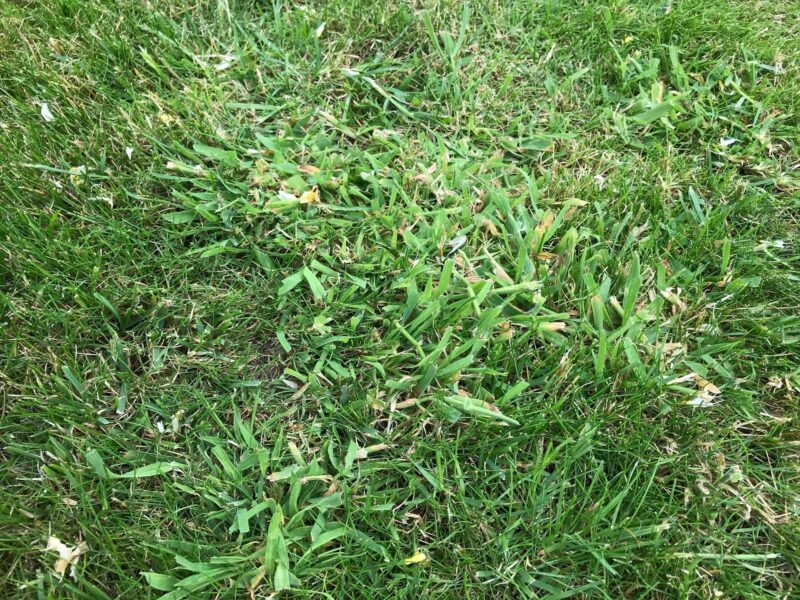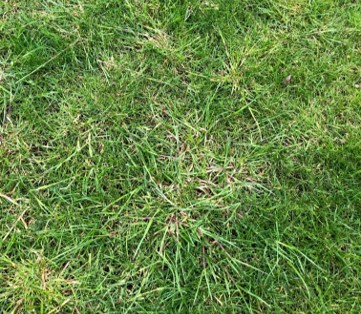Coarse Grasses
Create a lawn to love ...
a space to make memories
Coarse Grass
Yorkshire Fog (Holcus lanatus), is coarse wild grass that is common throughout the UK. You’ll find it growing anywhere that a seed might land and germinate and frustratingly in your lawn. Most of the year, you won’t know it’s there.

COARSE GRASS OVERVIEW
How to get rid of coarse weed grass
There is no selective herbicide that will kill Annual Meadow Grass or Yorkshire Fog and leave your lawn grasses alone. The only way to remove these grasses is culturally, physically or careful application with a total weed control and re seeding.
An annual autumn scarification with a fixed blade will slash through each plant. This lifts up the stems so they are more easily cut by the mower. Do not rake vigorously in spring, as this is the time of year when new shoots of the preferred finer grasses are rooting into the soil. You will expose areas of bare soil so it’s important to over seed the lawn otherwise its most likely to re appear. This approach will weaken the plant so that other lawn grasses can out-compete the weed grass.
If the infestation is extensive and the above sounds hard work, we would suggest a careful application of a total systemic weedkiller e.g. Round Up Gel, this is ideal as it can be applied directly to the grass plant (Avoid using the Ready to Use Spray delivery format as any over spray will kill the desired grasses as well). Re seed as required afterwards.
Alternatively, you could learn how to disguise the plants, making them less noticeable.
How to hide weed grass
The secret to disguising those patches lie in excellent and regular lawn care. Here are some do's and dont's
Mow frequently, suggested twice per week, but keep the mower blades 4cm is a good height. This keeps the desirable grass species strong and healthy so that they can outcompete the undesirable grass. AMG grows quicker than lawn grasses, It’s not been bred to cope with regular mowing. It won’t do as well in a regularly maintained lawn as it might where mowing is sporadic.
Feed your lawn. If you starve weed grasses it will do what all plants do when they’re stressed. Turn pale and try to set seed before the mother plant dies. Keep the whole lawn strong and healthy with a manageable feeding routine.
Mowing, use your mower to create patterns in the lawn. Stripes, chequers, even circles distract the eye.
Use a lawn care service Feed the lawn annually to encourage the growth of desirable turf grasses.
Avoid frequent watering in dry summers, as meadow grass is shallow-rooting, so should be discouraged by drought.
Other types of weed grass Poa Annua
(Coarse Grass are Annual Meadow Grass / Rough Stalk Meadow grass)

2021 has seen a big rise in AMG, agronomists put this down to the plant is taking survival actions following the dry and cold spring, putting up seed heads to reproduce and survive. In reality in almost certainly been present in the lawn for some time but not so visible.
If you’ve spotted annual meadow grass in your lawn, there’s some good news and some bad news. The good news is that it can be dealt with and removed; the bad news is that it really isn’t easy.
Poa annua will look coarser than the surrounding turf grasses.
Since there is no selective chemical for annual meadow grass (poa annua), there are no treatments which can be applied to kill the annual meadow grass without also killing the rest of your lawn.
Removing small areas of annual meadow grass eg small lawns/windblown plants
You can spot treat the offending plants with round-up or a similar product. Be careful when doing this as all plants treated, whether a weed or not, will be killed by the chemical. If you’d rather not use chemicals, cutting through the base and roots of the plant with a sharp knife will also kill the plant.
Removing annual meadow grass from larger lawns
If the problem is more widespread and, the grass becomes even more difficult to remove, if possible it all without replacing the lawn. There are a few techniques to get rid of the problem.
Firstly, you should feed your lawn, a regular lawn feeding regime will help lawn grasses to out compete annual meadow grass will be coming into growth. This helps thicken up the lawn which can prevent the problem from worsening making the existing annual meadow grass easier to deal with.
Since the roots of annual meadow grass are shallower than most turfgrass species, not watering your lawn often over summer can be an effective way of treating it. By waiting until your whole lawn looks to be suffering during a drought before watering, it’s likely that the weed grass will have died due to its shallower roots.
Preventing an infestation of annual meadow grass
As with most things, the best way of treating annual meadow grass is to prevent it infesting your lawn in the first place.
Keeping your lawn healthy, lush and dense will make it harder for any seeds introduced by birds or on the wind to establish themselves.
If you do begin to spot annual meadow grass, dealing with the problem early is vital. Since it seeds all year round, even when cut short, raking the stalks prior to cutting will help.
Get In Touch!
0115 837 8439
Expert lawncare with experienced personnel
Nottingham Most Reviewed lawn care
BASIS Lawn Assured
Experienced lawn care
Hard surfaces - Drives and Patios
Call for an online quote
